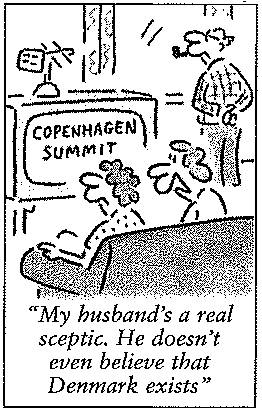Do EPA’s Carbon Emissions Rules Point to a New Climate Treaty? Nope.
The Future Global Climate Regime Will Not Rely on an International Accord
 The irrepressible Jonathan Chait continues to do what he does best: shredding the GOP’s neanderthal nihilism on climate (or as Andrew Sullivan notes, the Republican Party has become “a reckless, know-nothing, post-modern fantasy machine.”). But Chait makes one big leap of logic that should actually be scotched.
The irrepressible Jonathan Chait continues to do what he does best: shredding the GOP’s neanderthal nihilism on climate (or as Andrew Sullivan notes, the Republican Party has become “a reckless, know-nothing, post-modern fantasy machine.”). But Chait makes one big leap of logic that should actually be scotched.
Chait points out that contrary to conservative predictions that other countries would not respond in kind to Obama’s initiative, China already has begun to move on limited carbon emissions. He rightly points to the high probability that this involved some sort of coordination between Washington and Beijing, and remarks “the entire purpose” of the new rules “is to enable an international treaty.”
Not so fast. Merely because there is international coordination on policy issues hardly implies the existence or necessity of a treaty. As I have argued before, more informal coordination mechanisms are vastly more feasible politically. The United States will do a whole lot of little things, and try to reduce its emissions. The Chinese will do the same, partially in the form of trying to reduce pollutants with severe localized impacts like black carbon. The G-7 will come up with policy statements containing flexible goals about emissions reductions and temperature targets. Nations might cooperate somewhat more on technology transfer, patents, and international trade.
In other words, we will not have an international treaty, but something closer to what political scientists refer to as an international regime. Stephen Krasner more than thirty years ago famously defined a “regime” as “implicit or explicit principles, norms, rules and decision-making procedures around which actors’ expectations converge in a given area of international relations.” Regimes do not have to be formal institutions, and many of the most effective ones are not.
The politics of a formal treaty — either two-thirds in the Senate or an Executive-Legislative agreement — are so vicious in the United States that there is little point in going down that road. With the rise of right-wing parties in Europe, the ongoing questions of state legitimacy in China, and overall governmental dysfunction in India, committing one’s nation to a formal climate treaty is fiendishly difficult anywhere, especially given the centrality of energy to any nation’s standard of living.
Chait says that “the people who are paying attention to international thinking about climate negotiations seem to believe that American leadership stands at least a plausible chance of working.” Allow me some skepticism about Very Serious People on this issue, who claimed for years that the only way to make progress on climate was a binding global treaty (it would be very good, but hardly necessary). And if it is just about US “leadership,” that can take many forms.
More than a half a century ago, Yale’s Charles Lindblom wrote a seminal essay on the policymaking process entitled “The Science of Muddling Through.” Lindblom’s description applies even more sharply in the international arena. Muddling through is basically what we will get. Whether it will be good enough is another matter.
Reader Comments
2 Replies to “Do EPA’s Carbon Emissions Rules Point to a New Climate Treaty? Nope.”
Comments are closed.







Andrew Sullivan said:
“….the Republican Party has become “a reckless, know-nothing, post-modern fantasy machine….”
Dear Jonathan,
Your point about a climate regime is well-composed and succinctly acknowledges the status quo,
Regarding a Climate Treaty – Why should China commit to a Climate Treaty with America while we continue to block the free trade of Chinese carbon credits in our domestic markets? The State of California has effectively banned Chinese carbon credits from its cap & trade exchange. Mexican credits face similar trade barriers. If we are serious about protecting the world from climate change then America must promote free trade in carbon credits among all nations and work to eliminate barriers to free trade.
Great analysis !
For when we still had a few comfortable decades in front of us to avoid the now scientficaly and politicaly recognized 2C dangerous threshold.
Today’s (June 4th 2014) reality is
U.S. carbon plan will not reach climate goals [not even US goal…] – study, Potsdam Institute ,June 4 (Reuters)
http://research.tdwaterhouse.ca/research/public/Markets/NewsArticle/1314-L6N0OL2R7-1